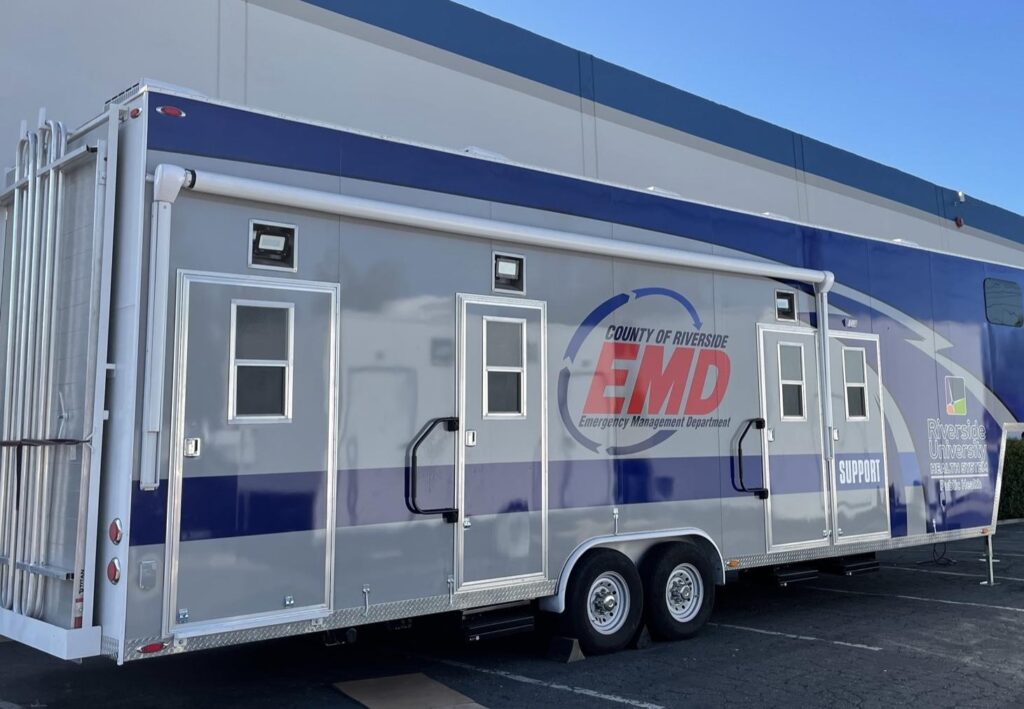As the healthcare industry continues to evolve, so does the need for flexible and innovative solutions to meet growing demands. Medical trailers have emerged as a critical resource in bridging the gap between healthcare providers and patients, offering mobile healthcare solutions that ensure access to vital services in diverse locations. Whether it’s in underserved rural areas or urban centers during public health crises, medical trailers are revolutionizing the way healthcare is delivered, ensuring that no patient is left behind.
What Are Medical Trailers?
Medical trailers are fully equipped mobile units designed to provide a variety of healthcare services on the go. These trailers are typically customized to meet the specific needs of healthcare providers, ranging from primary care services, diagnostic screenings, and treatment rooms to emergency response units. Outfitted with state-of-the-art medical equipment, including examination rooms, imaging devices, and even operating rooms, these trailers ensure that patients receive high-quality care, no matter their location.
Benefits of Medical Trailers
1. Increased Access to Healthcare
One of the most significant advantages of medical trailers is their ability to bring healthcare directly to underserved and remote communities. In rural areas where access to hospitals and clinics can be limited, medical trailers act as mobile clinics, providing essential services like primary care, screenings, vaccinations, and preventive health check-ups. This mobility is invaluable in ensuring that patients who may not have the means to travel to healthcare facilities can still receive the care they need.
2. Rapid Response for Emergencies
In times of disaster or public health crises, medical trailers are essential tools for providing rapid and effective healthcare. Equipped with everything from emergency medical supplies to advanced treatment facilities, these trailers can be deployed to disaster-stricken areas, providing immediate care to affected populations. During the COVID-19 pandemic, medical trailers played a vital role in delivering testing, vaccination, and treatment services to communities that were hard-hit by the virus. Their ability to be quickly mobilized and set up makes them a cornerstone of any public health emergency response strategy.
3. Cost-Effective Solution for Healthcare Providers
The cost of building new healthcare facilities is often prohibitive, particularly in areas with lower patient volumes or in regions prone to natural disasters. Medical trailers offer a cost-effective alternative, allowing healthcare providers to expand their reach without the financial burden of constructing and maintaining permanent facilities. These mobile units also lower operational costs by allowing medical teams to travel to multiple locations, providing services to more patients without duplicating resources or staff.
4. Versatility in Healthcare Services
Medical trailers are highly versatile and can be customized to offer a wide range of services. From basic primary care and vaccination clinics to specialized dental services, imaging diagnostics, and even minor surgical procedures, these trailers can be tailored to meet the needs of different medical disciplines. This makes them an essential asset for public health initiatives, disaster relief efforts, and private healthcare providers looking to expand their services.
Key Features of Modern Medical Trailers
Advanced Medical Equipment: From diagnostic tools like X-ray and ultrasound machines to fully functional operating rooms, modern medical trailers are equipped to handle a variety of healthcare needs.
Climate Control and Sterilization: To ensure that medical environments remain sterile, trailers come with air filtration systems, temperature control, and specialized storage for medical supplies, ensuring a clean and safe space for patient care.
Accessibility Features: Medical trailers are designed with accessibility in mind, often featuring wheelchair ramps, wider doorways, and adaptive equipment, ensuring that all patients, including those with disabilities, can receive care.
Industries Benefiting from Medical Trailers
Public Health Initiatives: These trailers are essential for public health programs focused on screening, vaccination, and outreach services in underserved communities.
Disaster Relief Organizations: During natural disasters or pandemics, medical trailers offer critical care services in areas where traditional healthcare facilities may be overwhelmed or inaccessible.
Nonprofit Healthcare Providers: Many nonprofit organizations utilize medical trailers to bring services to remote and underserved areas, ensuring that all populations have access to essential healthcare.
Private Healthcare Companies: By offering specialized services such as imaging, dental care, or diagnostics in various locations, private companies can increase their patient base and offer more convenient care options.
The Future of Mobile Healthcare
The rise of medical trailers reflects the healthcare industry’s need for adaptable, innovative solutions that meet the growing demand for accessible care. As healthcare needs evolve, medical trailers are expected to incorporate even more advanced technologies, including telemedicine capabilities, electric and hybrid power units, and sustainable designs that reduce environmental impact. These trailers will continue to play a pivotal role in bridging the gap between healthcare providers and the patients who need them, particularly in underserved or remote areas.
Conclusion
Medical trailers are transforming the healthcare landscape by offering flexible, cost-effective solutions that meet the growing needs of patients and providers alike. Whether for routine care, specialized treatments, or emergency response, these mobile units are essential tools in ensuring healthcare is accessible to everyone, regardless of location. As we look toward the future, the continued development and use of medical trailers will further enhance the reach and quality of care, making healthcare more mobile, flexible, and patient-centered.

